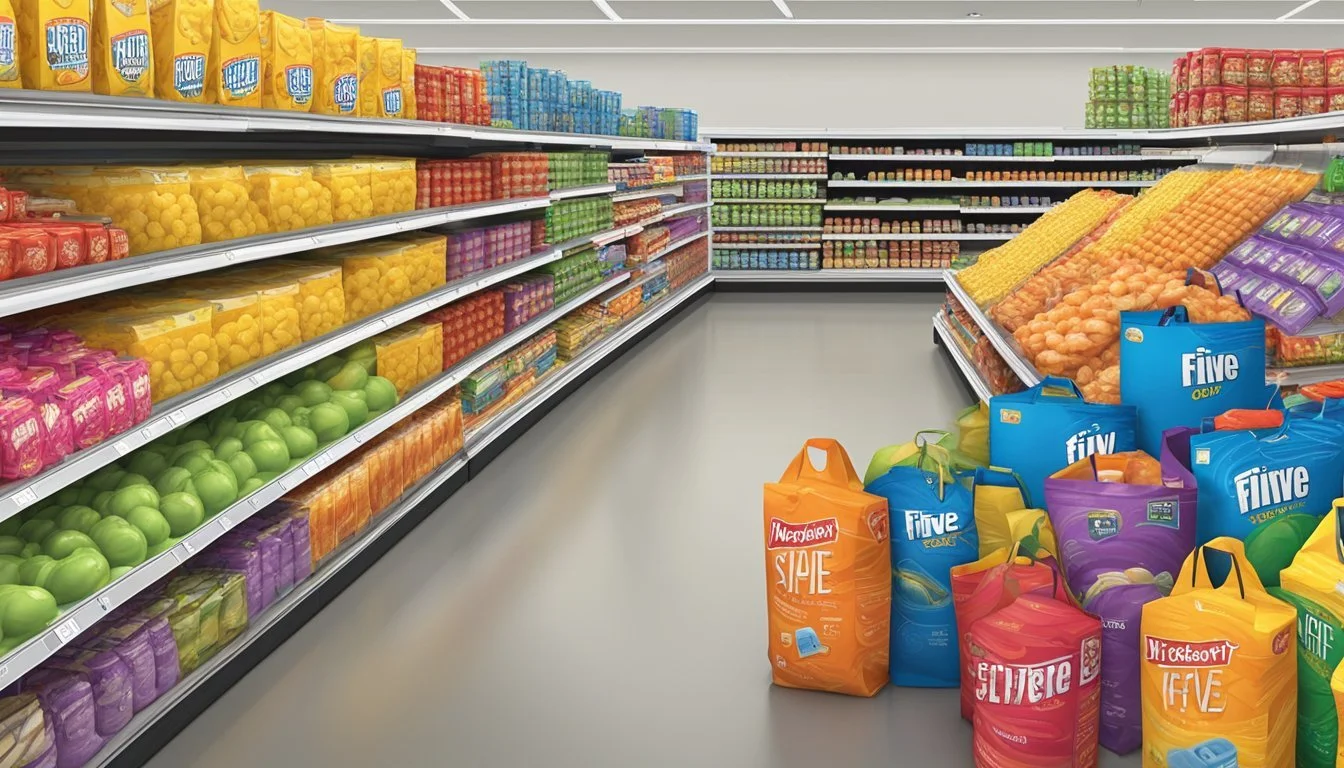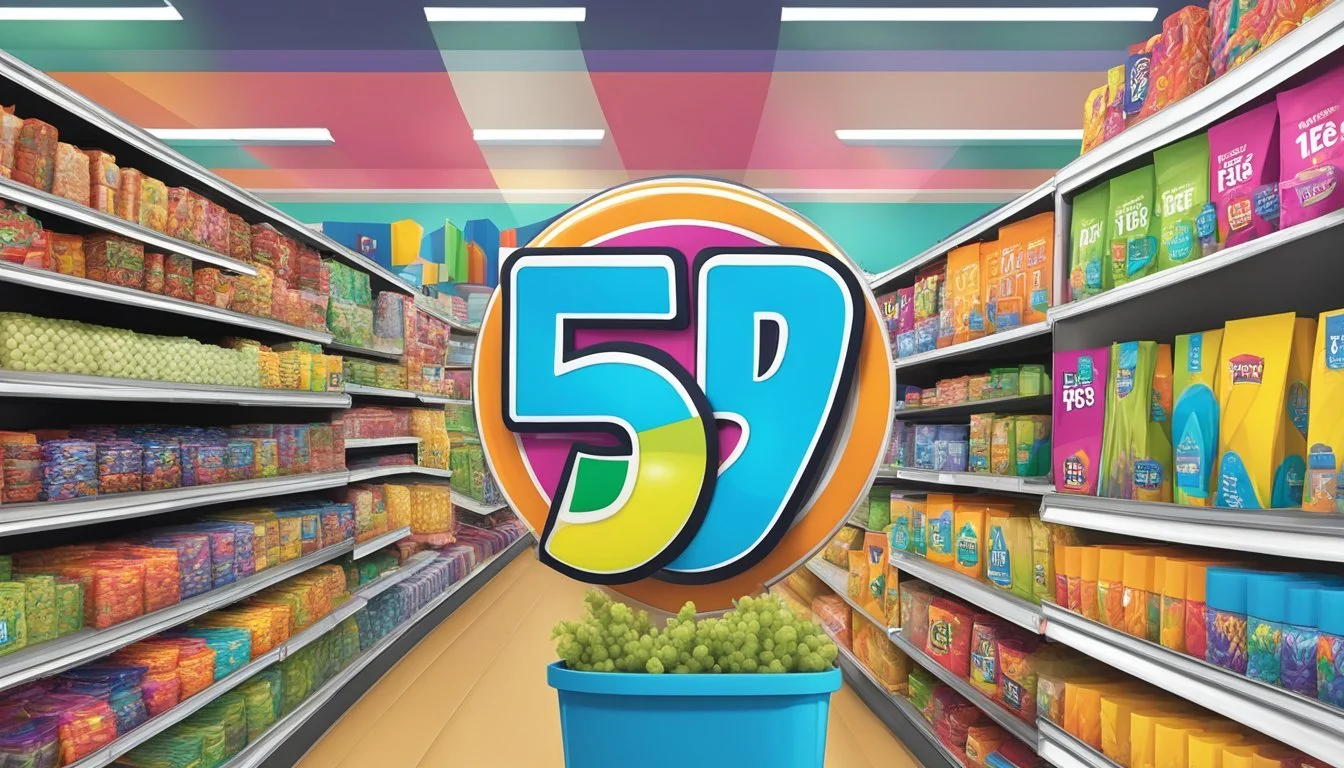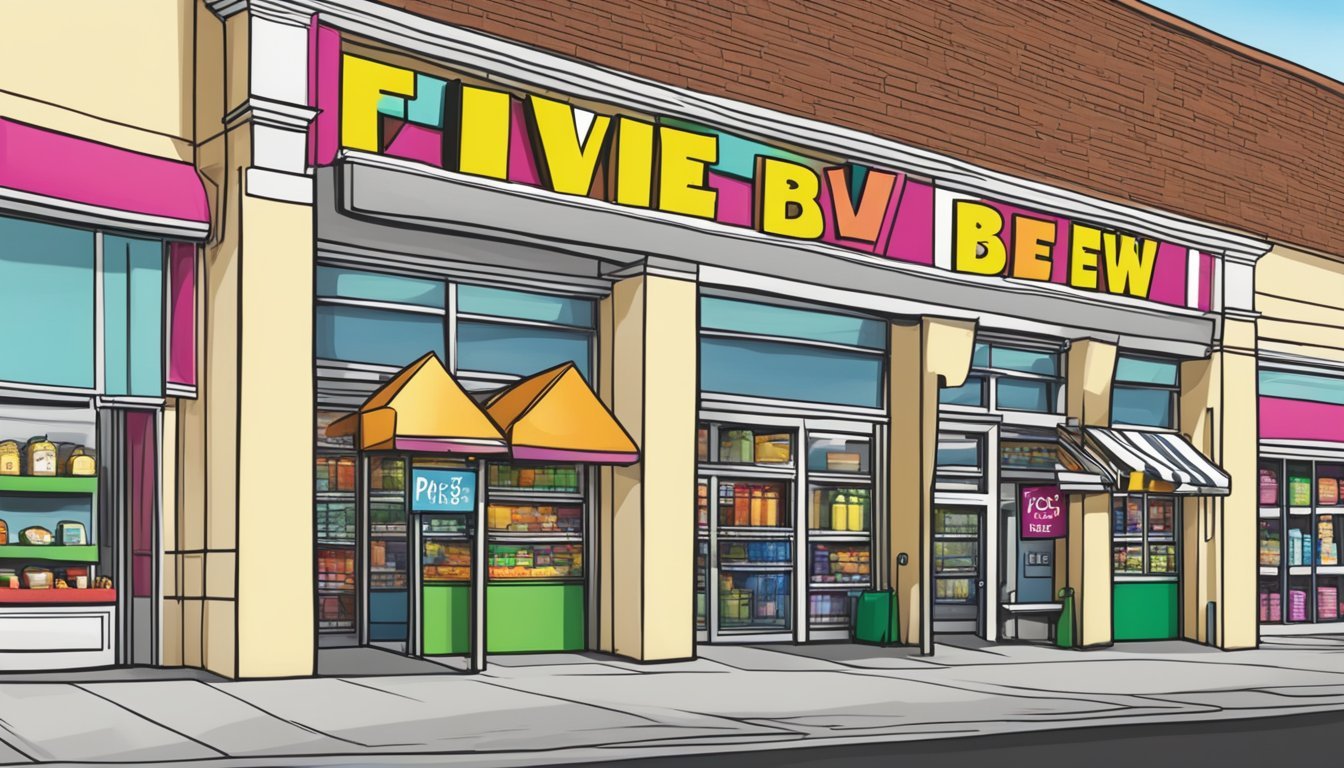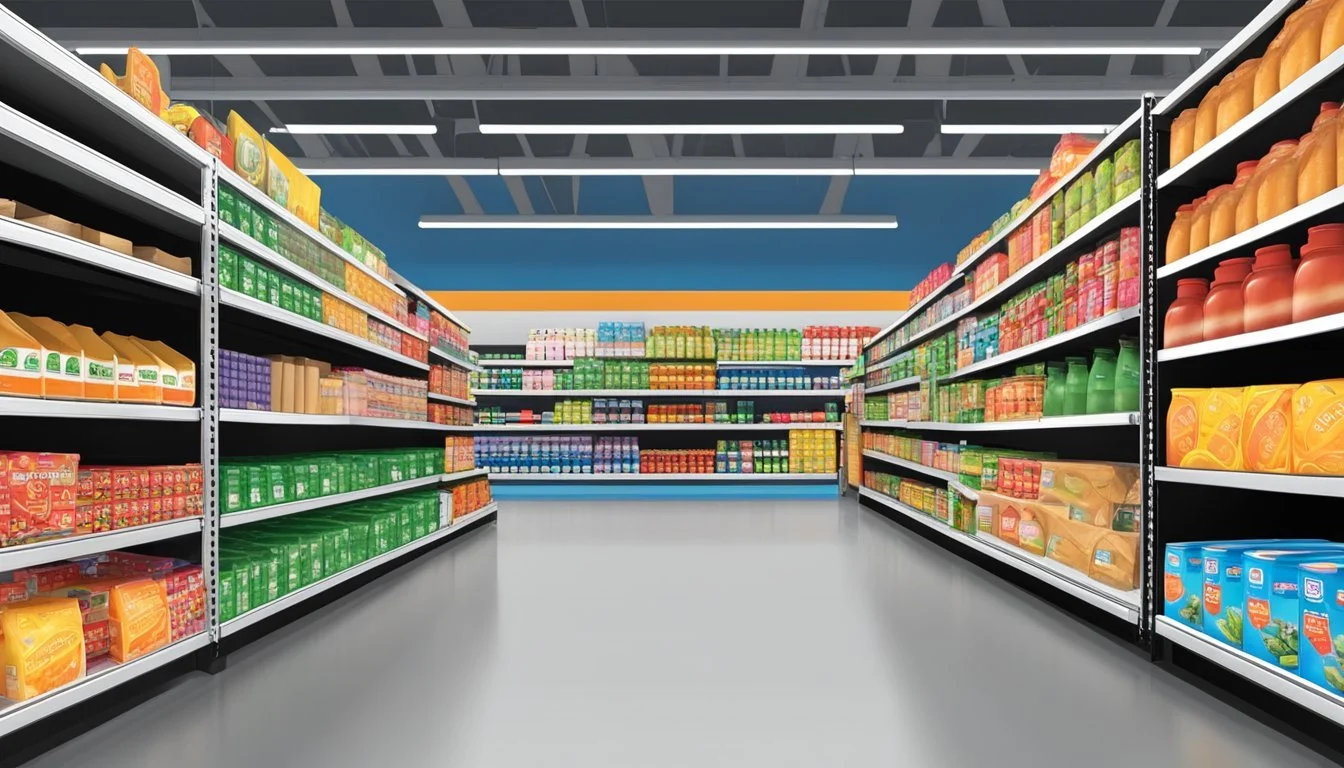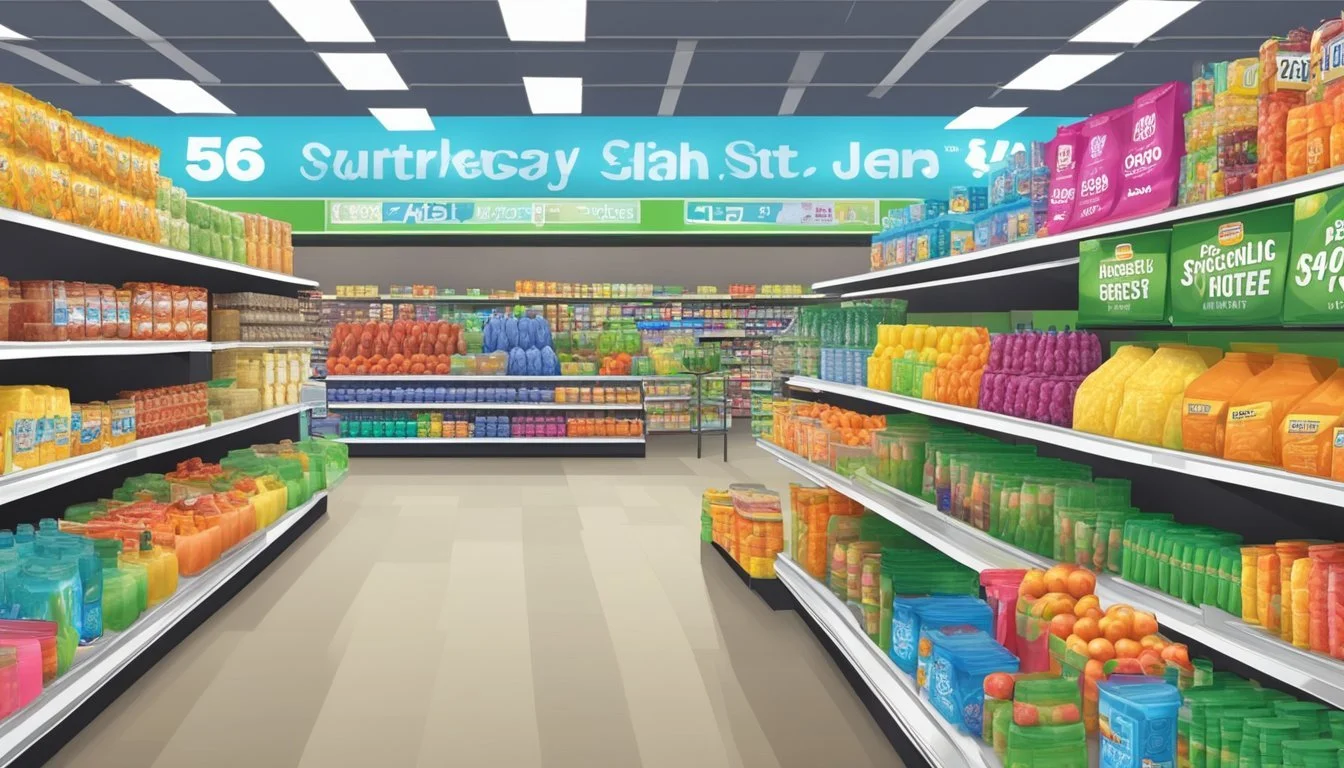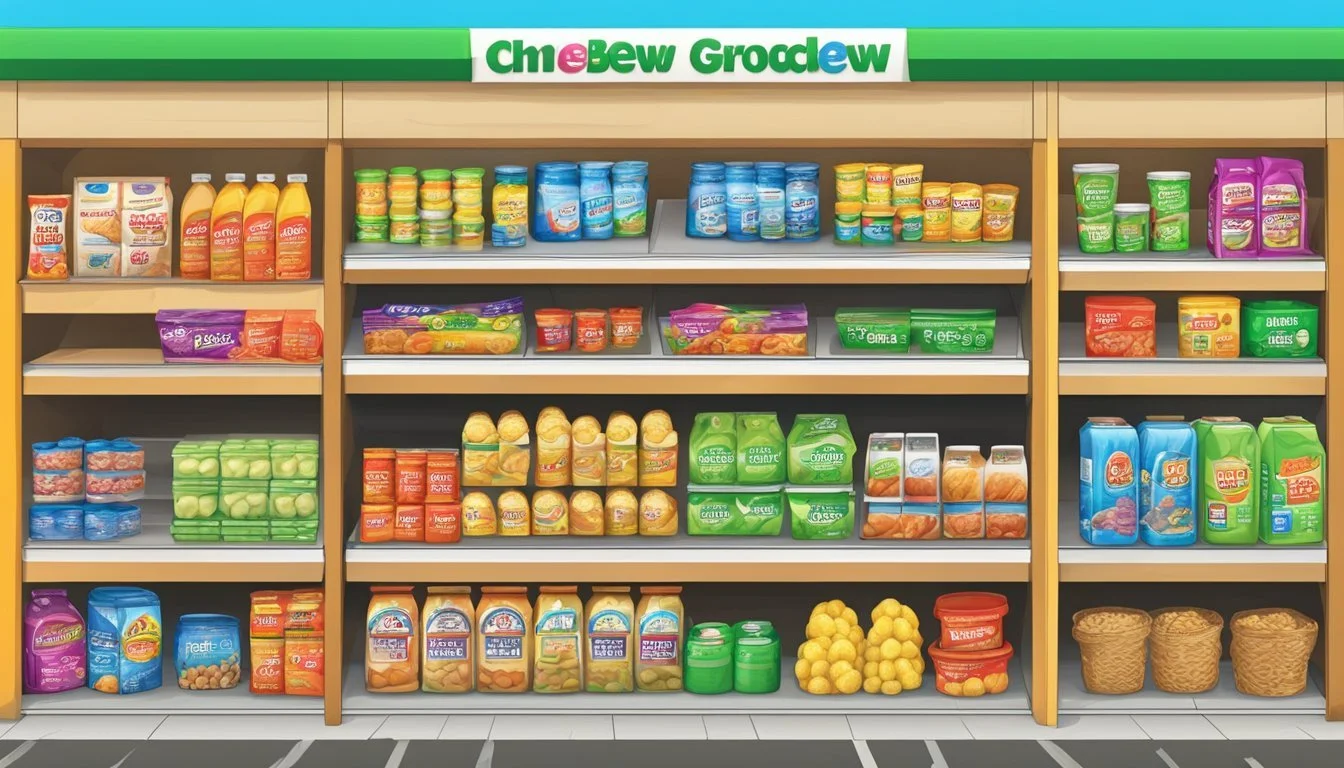Is Five Below Cheaper Than Grocery Outlet?
A price comparison of discount retailers
Five Below and Grocery Outlet are popular destinations for budget-conscious shoppers seeking affordable goods. While both stores offer discounted items, they cater to different product categories and shopping experiences.
Five Below specializes in trendy merchandise priced at $5 or less, with some items reaching up to $10. The store focuses on fun, non-essential products like toys, accessories, and home decor. Grocery Outlet, on the other hand, primarily deals in discounted groceries and household essentials, often offering prices lower than traditional supermarkets.
Comparing the two stores directly on price can be challenging due to their distinct product offerings. Grocery Outlet may provide better value for everyday food items and necessities, while Five Below excels in low-cost novelty and seasonal products. Shoppers looking to save money should consider both stores for different aspects of their shopping needs.
Overview of Discount Retail
Discount retail offers consumers opportunities to purchase goods at lower prices than traditional stores. This sector includes various business models focused on providing value through reduced costs and competitive pricing strategies.
Defining Discount Retailers
Discount retailers specialize in selling products at prices below those typically found in conventional retail stores. These businesses employ various strategies to offer savings to customers:
Bulk purchasing to secure lower wholesale prices
Streamlined operations to reduce overhead costs
Limited product selection to focus on high-demand items
Private label brands with lower production costs
Examples of discount retailers include Aldi, Walmart, and Dollar General. These stores often feature no-frills shopping environments and self-service layouts to keep expenses down.
Importance of Discount Retail in the Economy
Discount retail plays a crucial role in the economy by:
Providing affordable options for budget-conscious consumers
Creating jobs in retail and related industries
Driving competition and innovation in the retail sector
Offering a buffer against economic downturns
During recessions or periods of inflation, discount retailers often see increased traffic as shoppers seek ways to stretch their budgets. This sector helps maintain consumer spending and economic activity even in challenging times.
Comparison of Discount Retail Models
Discount retailers employ different approaches to deliver value:
Everyday low prices (EDLP): Consistently low prices across all items (e.g., Walmart)
High-low pricing: Regular prices with frequent sales and promotions (e.g., Target)
Extreme discounting: Dramatically reduced prices on a rotating selection of items (e.g., Grocery Outlet)
Model Pricing Strategy Product Selection Shopping Experience EDLP Consistent low prices Wide range One-stop shop High-low Regular prices with sales Varied selection Deal-hunting Extreme Deep discounts Limited, changing inventory Treasure hunt
Each model targets different consumer preferences and shopping behaviors, catering to various segments of the discount-seeking market.
Five Below's Business Model
Five Below's business model centers on offering a wide range of trendy products at affordable prices. The company employs a unique pricing strategy, carefully curates its product selection, and targets a specific customer base to drive sales and growth.
Price Tag Strategy
Five Below's core pricing strategy revolves around offering products at $5 or less. This approach creates a clear value proposition for customers, making shopping decisions simple and appealing. The company maintains this price point for approximately 85% of its inventory, with some items priced up to $10.
By keeping prices low, Five Below encourages impulse purchases and repeat visits. The strategy also allows customers to try new products without significant financial risk, fostering a sense of discovery and excitement in the shopping experience.
Product Selection and Quality
Five Below focuses on offering a diverse array of trending and seasonal items across various categories. These include toys, tech accessories, beauty products, home decor, and snacks. The company constantly refreshes its inventory to keep up with current trends and maintain customer interest.
While prioritizing affordability, Five Below strives to maintain acceptable quality standards. The company sources products from various suppliers and works to balance cost and quality. This approach allows customers to find both practical and fun items at budget-friendly prices.
Target Customer Base and Store Appeal
Five Below primarily targets teens, tweens, and value-conscious adults. The store design and product selection aim to create an engaging and fun shopping environment that appeals to younger customers while also attracting budget-minded shoppers of all ages.
The company's brick-and-mortar locations feature bright colors, clear signage, and organized displays to enhance the shopping experience. Five Below also invests in digital capabilities to reach tech-savvy customers and complement its physical stores.
By focusing on this specific demographic and creating an appealing store atmosphere, Five Below differentiates itself from traditional discount retailers and dollar stores.
Grocery Outlet's Operations
Grocery Outlet operates using a unique business model that combines discount pricing, diverse inventory, and a distinct shopping experience. This approach allows them to offer significant savings to customers while maintaining a wide product selection.
Grocery Outlet's Pricing Mechanism
Grocery Outlet employs an opportunistic buying strategy to secure deeply discounted products. They purchase excess inventory, discontinued items, and closeouts from manufacturers and distributors. This allows them to offer prices 40-70% below traditional supermarkets.
The company's buyers negotiate deals on overstock or packaging changes, passing savings to customers. Grocery Outlet's pricing fluctuates based on available deals, creating a treasure hunt atmosphere for shoppers.
Inventory and Product Selection
Grocery Outlet stocks around 30,000 products, significantly more than some discount competitors. Their inventory includes:
Name-brand groceries
Fresh produce
Dairy and refrigerated items
Frozen foods
Household staples
Wine and beer
Product availability varies by location and changes frequently due to the opportunistic buying model. This rotating selection encourages repeat visits from bargain-hunting customers.
Consumer Shopping Experience
Grocery Outlet stores offer a no-frills shopping environment focused on value. Store layouts are simple, with clearly marked aisles and prominent price displays.
Shoppers can expect:
A mix of familiar brands and unique finds
Varying product availability
Self-service checkout options
Friendly, locally-owned franchise operations
The shopping experience emphasizes discovery and savings. Customers often report feeling excited about unexpected deals and new product finds during their visits.
Comparison of Product Range
Five Below and Grocery Outlet cater to different shopping needs with distinct product offerings. Their merchandise selections reflect their unique business models and target customer bases.
Five Below's Specialty Merchandise
Five Below specializes in trendy, low-cost items across various categories. The store's inventory includes toys, games, tech accessories, beauty products, and home decor. Most items are priced at $5 or less, with some premium products reaching $10.
Five Below's product range often changes to keep up with current trends and seasons. The store carries popular branded items alongside its own private label products. Shoppers can find school supplies, party goods, and small electronics.
Unlike traditional grocery stores, Five Below does not stock fresh produce, meats, or dairy products. The store's food selection is limited to snacks, candy, and beverages.
Grocery Outlet's Focus on Grocery Items
Grocery Outlet primarily offers discounted food and household essentials. The store's inventory includes a wide range of grocery staples, fresh produce, dairy products, and frozen foods.
Grocery Outlet sources its products through opportunistic buying, allowing them to offer name-brand items at reduced prices. The store's selection can vary by location and availability.
Shoppers can find canned goods, cereals, and organic produce at Grocery Outlet. The store also carries a selection of wine and beer in some locations.
While Grocery Outlet focuses on food items, it also offers limited non-food products such as kitchenware, seasonal items, and personal care products. However, these non-grocery items make up a smaller portion of the store's overall inventory compared to Five Below.
Pricing and Saving Opportunities
Five Below and Grocery Outlet both offer budget-friendly shopping experiences, but their pricing strategies and saving opportunities differ. Understanding these differences can help shoppers maximize their savings at each store.
Measuring Saving Potential
Five Below maintains a consistent price point of $5 or less for most items. This simplifies budgeting and allows customers to easily predict costs. The store often features name-brand products at discounted prices, providing value for budget-conscious shoppers.
Grocery Outlet, on the other hand, claims to offer prices 40-70% lower than traditional supermarkets. Their inventory changes frequently due to opportunistic buying practices. This model can lead to significant savings on groceries and household items.
Families can potentially save more at Grocery Outlet on essential items like food and cleaning supplies. However, Five Below may offer better deals on discretionary purchases such as toys, accessories, and seasonal items.
Evaluating Discount Tags and Offers
Five Below occasionally runs promotions where items are priced even lower than $5. These sales often target specific categories or seasonal merchandise. The store's straightforward pricing model means discounts are usually clearly marked and easy to understand.
Grocery Outlet uses a different approach, with "WOW!" tags highlighting particularly good deals. These tags indicate products with exceptionally high savings compared to regular retail prices. The store also offers a rewards program that provides additional savings opportunities.
Both stores leverage their size to negotiate better prices with suppliers. However, Grocery Outlet's larger product range and focus on groceries may provide more diverse saving opportunities for everyday essentials.
Gas savings are not typically associated with either store, as neither operates fuel stations. The best deals at both retailers are often found by shopping regularly and staying alert to new inventory arrivals.
Consumer Experience and Service
Both Five Below and Grocery Outlet prioritize customer satisfaction, but their approaches differ. Each store aims to provide value while maintaining efficient service and convenient shopping experiences.
Checking Out and Convenience
Five Below offers a streamlined checkout process with multiple registers to handle high customer volumes. Self-checkout kiosks are available in some locations, reducing wait times during busy periods. The store layout is designed for easy navigation, with clearly marked sections and wide aisles.
Grocery Outlet focuses on a traditional supermarket layout. Checkout lines can vary in length depending on store traffic. Some locations offer bagging services, while others expect customers to bag their own groceries. The store's "treasure hunt" style may require more time for shoppers to find specific items.
Customer Service Efficiency
Five Below employs a younger workforce trained to assist customers quickly. Staff members are typically positioned throughout the store to help with product inquiries. Returns and exchanges are generally hassle-free, with a customer-friendly policy.
Grocery Outlet often hires experienced staff familiar with grocery operations. Employees can provide detailed product information and assist with locating items. The chain's independent operator model allows for personalized service tailored to local community needs.
Both retailers strive to maintain clean, well-organized stores. However, Grocery Outlet's changing inventory may occasionally result in temporary disorganization as new products are stocked.
Market Trends and Economic Factors
Economic shifts and consumer preferences shape the competitive landscape between Five Below and Grocery Outlet. Price sensitivity and shopping behaviors continue to evolve in response to broader market forces.
Influence of Inflation on Pricing
Inflation has driven up food prices by 23% since 2020. This increase impacts both Five Below and Grocery Outlet's pricing strategies. Five Below faces challenges maintaining its $5-and-below model. Grocery Outlet leverages its opportunistic buying to offer discounts.
Rising costs force both retailers to adapt. Five Below introduces higher price points for select items. Grocery Outlet expands its private label offerings to maintain value.
Consumer focus on affordability intensifies. Budget-conscious shoppers compare prices more closely. This trend benefits Grocery Outlet's discount model.
Market Dynamics and Consumer Behavior
Value-seeking behavior is on the rise. Shoppers prioritize deals and discounts. This shift favors Grocery Outlet's positioning as a bargain destination.
Five Below targets a different market segment. It appeals to impulse buyers and gift-seekers. The company's success relies on creating a treasure hunt experience.
Consumer preferences for convenience grow. Online shopping and rapid delivery gain traction. Five Below expands its e-commerce presence. Grocery Outlet focuses on in-store experiences.
Health-conscious eating impacts buying decisions. Grocery Outlet stocks more fresh and organic options. Five Below primarily offers packaged snacks and treats.
Final Verdict on Pricing
Five Below and Grocery Outlet both offer discounted products, but their pricing models differ significantly. Five Below maintains a consistent $5 or less price point for most items. Grocery Outlet, on the other hand, provides varying discounts on a rotating selection of groceries and household goods.
For grocery items, Grocery Outlet generally offers better savings. Their opportunistic buying strategy allows them to sell products at 40-70% below traditional supermarket prices.
Five Below excels in non-food categories like accessories, toys, and home decor. Their fixed price structure makes budgeting easier for shoppers seeking affordable non-essentials.
The winner in terms of overall pricing depends on specific shopping needs:
Groceries: Grocery Outlet
Non-food items: Five Below
Budget-conscious consumers can benefit from both stores. Grocery Outlet helps reduce food expenses, while Five Below offers predictable pricing for discretionary purchases.
Shoppers seeking the best deals should compare prices at both stores. Combining strategic purchases from each retailer can maximize savings across various product categories.
Additional Resources
For those seeking more information on comparing prices between Five Below and Grocery Outlet, several valuable resources are available. These include podcasts, articles, community discussions, and reviews that offer deeper insights and diverse perspectives.
Relevant Podcasts and Articles
The "Frugal Living" podcast has an episode dedicated to comparing discount retailers, including Five Below and Grocery Outlet. It provides detailed price breakdowns and shopping strategies. The San Francisco Chronicle published an article titled "Bargain Hunting: Five Below vs. Grocery Outlet" that offers a comprehensive comparison of product selections and pricing structures.
Consumer Reports released a study comparing various discount chains, including Five Below, Grocery Outlet, and Target. The report analyzes product quality, pricing, and overall value. Forbes published a piece on "The Rise of Extreme Value Retailers" that examines the business models of Five Below and Grocery Outlet.
Community Discussions and Reviews
Reddit's r/Frugal subreddit features multiple threads discussing shopping experiences at Five Below and Grocery Outlet. Users share pricing information, product recommendations, and money-saving tips. The Krazy Coupon Lady website hosts a forum where shoppers compare deals and discuss strategies for maximizing savings at both stores.
Yelp reviews for Five Below and Grocery Outlet locations provide firsthand accounts of customer experiences, including comments on pricing and product quality. Facebook groups dedicated to budget shopping often feature discussions comparing prices and products between Five Below, Grocery Outlet, and other retailers like Trader Joe's and Giant.

